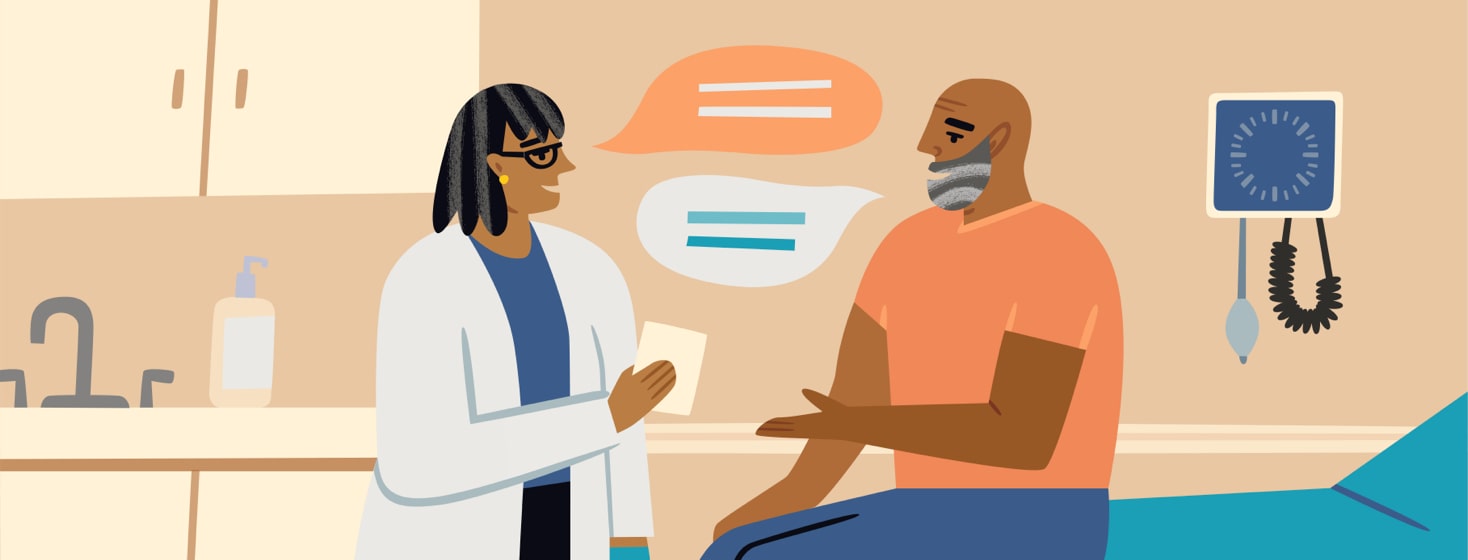5 Tips for Questioning Your Doctors About Migraine Treatments
In the chronic illness community, we talk a lot about how to be empowered patients who work as partners with our healthcare providers to make the very best decisions about our care and treatments. One of the hardest yet most important aspects of being an empowered patient relates to your interaction with your doctors. Specifically, being willing to question them about their recommendations.
Featured Forum
View all responsesHow can the doctor-patient relationship impact your care?
The doctor-patient relationship is an intimidating one for most patients. We are raised to treat doctors as authority figures and defer to their judgment. Clearly, they deserve our respect and courtesy, just as we deserve theirs. They have education and experience we as laypeople cannot ever replicate.
However, if we are too quick to defer to their opinions and don't voice our concerns, we can find ourselves agreeing to treatments and procedures we don't feel comfortable trying. If we're lucky, we can rectify that situation once we realize we're not comfortable. If we're not, we may suffer from side effects and a lot of regrets. I know I've certainly been there, and I suspect I'm not alone in that.
How can you partner with your migraine doctor?
With these priorities in mind, I'd like to suggest five guidelines you can follow to assert yourself as a partner in your health care without being disrespectful to your doctors.
Tip #1
Ask for time to make a decision. If your doctor suggests a treatment or procedure that you don't know much about, ask for some time to make a decision about whether it's right for you. Don't allow yourself to be bullied into deciding that day or, even worse, undergoing a procedure on the spot that you've never heard about or researched before.
Tip #2
Always arm yourself with a set of questions to ask about any potential treatment, medication, or procedure. Regardless of the specific treatment your doctor is proposing, by keeping a list of these questions in your wallet or smartphone, you can be prepared at a moment's notice to get the information you'll need to make an educated choice. Always make sure you write down the answers for future reference, too.
- What does this treatment/medication do?
- What are the side effects and risks? How likely am I to experience them?
- Why do you think it will be helpful for me and my situation?
- How many of your patients have tried this? What were their experiences?
- Do I need to modify my behavior while experiencing this treatment or taking this medication?
- How long will it be before I notice any difference in my symptoms?
Tip #3
You reserve the right to seek a second opinion.
Tip #4
Don't tolerate a doctor who is dismissive of your concerns. If you find yourself in a relationship with a doctor who is rude when you ask questions, dismissive of your concerns, or disrespectful when you ask for time to think an option over, find a new doctor. A good doctor will not feel threatened that you are an empowered patient. On the contrary, he or she will appreciate working with an engaged, educated patient who cares enough about his or her health to be an active partner in making treatment decisions.
Tip #5
Don't decide to start or quit a medication or treatment without discussing it with your doctor first. Patient noncompliance with prescriptions is a huge issue in medicine. I think the main reason is that people have unaddressed concerns about taking the medication in the first place. Don't make this mistake! If you get home with a prescription or treatment plan and start to have doubts or concerns, call your doctor. Be open about your worries and get them addressed rather than just throwing away the prescription or filling it and never taking it. Believe me when I say your doctor would rather answer your questions than have you come back and tell him or her you never even tried the medication even though you left him or her with the impression you would.
Do you find it difficult to question your doctors? What is hard about it for you? Please share your thoughts in the comments.

Join the conversation